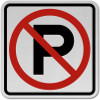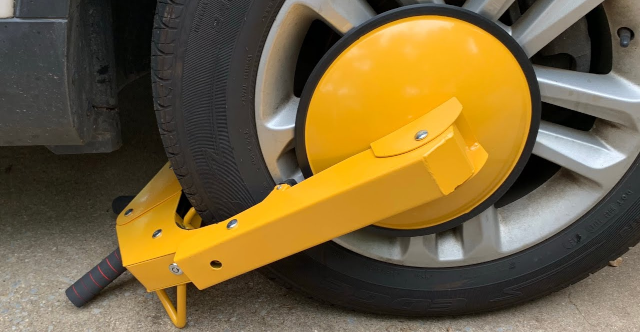 Question: Are parking boots legal in BC? I work for a BC college and we are constantly battling improper parking and as a small campus we do not charge for parking and thus have no enforcement.
Question: Are parking boots legal in BC? I work for a BC college and we are constantly battling improper parking and as a small campus we do not charge for parking and thus have no enforcement.
A suggestion was to buy and start using parking boots for cars parked illegally or in an unsafe manner. Where could I find out if this is a legal practice in BC?
Application of Parking Boots

The Motor Vehicle Act does give you some authorities as the owner of private property in relation to parked vehicles:
Parking on private property
192 (1) If a motor vehicle or trailer is left without the occupier's consent on private property in a municipality or treaty lands or for a period exceeding 72 hours on private property not in a municipality or treaty lands, the owner of the motor vehicle or trailer is deemed to have authorized and empowered the occupier to be the owner's agent for the purpose of towing it to a place of storage and of storing it.
(2) The agent has a lien against the motor vehicle or trailer for all reasonable advances made or charges incurred in connection with the towing and storing of it in the course of the agency.
(3) The procedure respecting enforcement of the lien must be governed by the Warehouse Lien Act.
So, for the areas on campus that are considered to be private property, which may be all of it, including the roads, it might be simpler just to have the offenders removed by tow truck.
Authority
Your institution is governed by a board under section 3 of the University Act. The board can choose to use parking boots in the administration of parking rules.
Powers of board
27 (1) The management, administration and control of the property, revenue, business and affairs of the university are vested in the board.
(2) Without limiting subsection (1) or the general powers conferred on the board by this Act, the board has the following powers:
(t.2) for the purposes of paragraphs (t) and (t.1), to provide for the removal, immobilization or impounding, and recovery, of any property associated with a contravention of a rule or other instrument made in the exercise of a power under this section;
Share This Article
Hi
We run a Boat Harbour on the coast, which has a parking lot, requiring payment. Recently it was decided to purchase a wheel boot to install on vehicles who have failed to pay or are parked in a no parking area. Are there regulations in place that would help define policies on what length of time a vehicle should be parked illegally before we can take action?
- Log in to post comments
Your parking lot is private property, and people using it would be agreeing to your contract for the privilege when they park there.
It's up to you to set the parameters of the contract and notify those who will have to agree to it.
Since this is civil law, it is not something that I have any experience in. You would need to discuss it with a lawyer for the best advice.
- Log in to post comments
- Log in to post comments

Parking at Marina